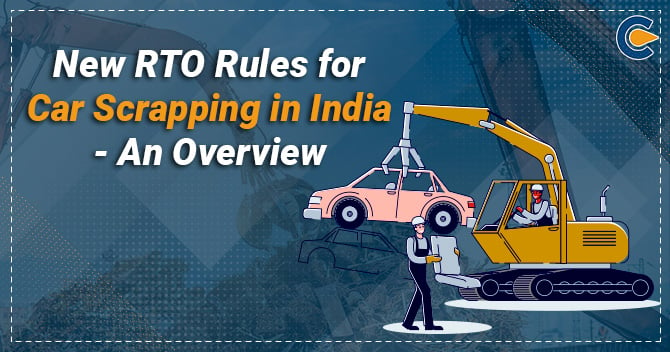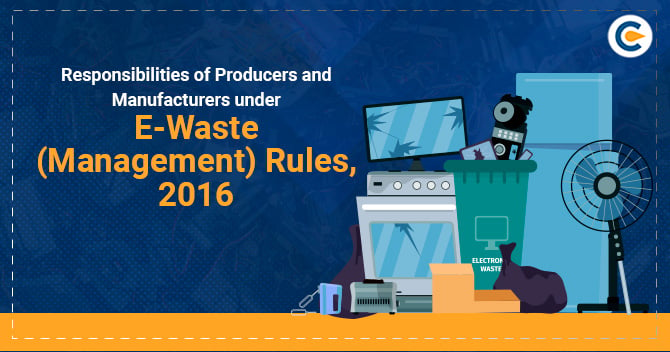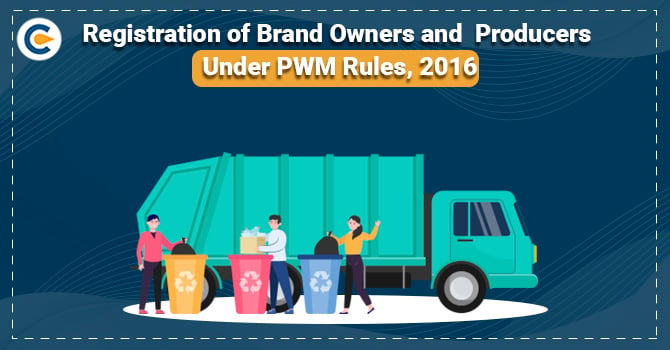The RTO has specified rules for scrapping old cars in India. According to the new RTO rules for car scrapping, cars that are older than fifteen years cannot be used. Though they can be transferred or shifted to a new state for re-registration, it’s a hassle. Instead, one can scrap the car. In India, the Scrapping policy makes sure that more & more old cars or vehicles get off the roads and people buy new vehicles. A few factors should be considered before the policy goes into action, including the vehicle age, fuel type and the city where the car is used, etc.
Also, the Government of India levies a Green Tax on cars or vehicles which are older than 15 years in terms of pollution. Once the policy goes into action, it will be a beneficial situation for both manufacturers and the owners of the vehicles.
Owners of the vehicle have an option to sell or transfer their vehicle to another neighboring state provided their RC (Registration Certificate) before it expires. It is crucial that this is done before the expiry of the Registration Certificate of the vehicle, as the RO will not renew the expired RC, i.e., the car completed 15 years. When a car is transferred or shifted to another state, it will have to be re-registered at the new RTO and this registration should be updated in the old RTO’s records. Else, there is always a risk of the vehicle being used for illegal activities. So, car scrapping is an option in front of an owner of a car who is not keen on transferring the vehicle or car to another state. Now let’s discuss the new RTO rules for car scrapping in India.
An Overview of Car Scrapping
Before we discuss the new RTO rules for car scrapping in India, let’s discuss some important points regarding car scrapping. To avoid the complexity of transferring or shifting a car to another state, the car owner can scrap the vehicle. Scrapping an old car or vehicle is one of the safest options and this ensures that the car is cut down into pieces and recycled. The chances of it being used for illegal activities are completely eliminated as well.
Following are some vital points to know regarding the car scrapping process:
- The owner of a car should also approach the RTO and inform them regarding the vehicle or car scrapping. There is also an option to de-register the car as well.
- The owner of a car can negotiate on the price they get for different car parts like types, battery, etc.; this hugely depends on the condition of these parts as well. If the car has a CNG unit, then this can also be dealt with separately.
- When the car or vehicle is scrapped, then its chassis number is taken out before scrapping the car.
- One of the precautions or cautions you must take is to check or examine whether the car or vehicle has actually been scrapped by the scrap dealer.
- One of the precautions or cautions you must take is to check whether the car or vehicle has actually been scrapped by the scrap dealer. There could be a case wherein the scrap dealer doesn’t really scrap the vehicle and then it may alter hands and be used for unauthorized activities. This could invite trouble for the actual car owner as the vehicle registration is in the owner’s name.
- It’s not vital to submit the original RC to the scrap dealer. You should only provide the RC copy.
- The owner of a car is expected to approach a certified scrap dealer for scrapping. The dealer should be able to ensure that the vehicle is disposed of safely and correctly without any adverse impact on the environment.
- You can also take some photos of the scrapped car as evidence for further procedures at the RTO.
RTO Rules for Car Scrapping and De-Registration of Vehicles
Following are some RTO Rules for Car Scrapping and De-Registration of Vehicles:
- The owner of a car will first have to write a letter to the certified RTO regarding the car scrapping;
- The confirmation of the scrap dealer on letterhead with a complete address is also required and the scrap pictures can be submitted at this time;
- The car owner will have to surrender the original Registration Certificate (RC) of the car along with the chassis number of the car that was cut out from the car during scrapping and this will be kept at the RTO as part of the historical records;
- The owner of a vehicle also submits an affidavit with the application for car scrap and de-registration. The affidavit will cite that the car is not under any loan, insurance claims/or pending court cases. The affidavit will also make sure that the vehicle is not involved in thefts.
The RTO will check the documents submitted & proceed further with the next steps after receiving diligence reports from the NCRB (National Crime Records Bureau) and traffic police. Verification is also done for the detailed records maintained at the RTO regarding the purchase/sale of the car. If all such records are found to be satisfactory, the car will be de-registered by the RTO.
SIAM or the Society of Indian Automobile Manufacturers, has made suggestions to the Government to offer incentives to car or vehicle owners who decide to scrap their old vehicles. The US Government has a scheme that provides tax benefits and another incentive for such car owners. Society of Indian Automobile Manufacturers[1] recommends that such a policy is implemented in our nation so that owners would be urged to come forward for car scrapping.
Conclusion
The implementation of RTO Rules for Car Scrapping is not just a boon for the automobile industry; it will benefit all the stakeholders. It is beneficial for vehicle owners, helpful for the Government to implement road safety, a breakthrough for industries using recycled metals & other parts, and also helps lessen the insurance cost.
Read our Article:EPR Guidelines for Plastic Wastes – An Overview











